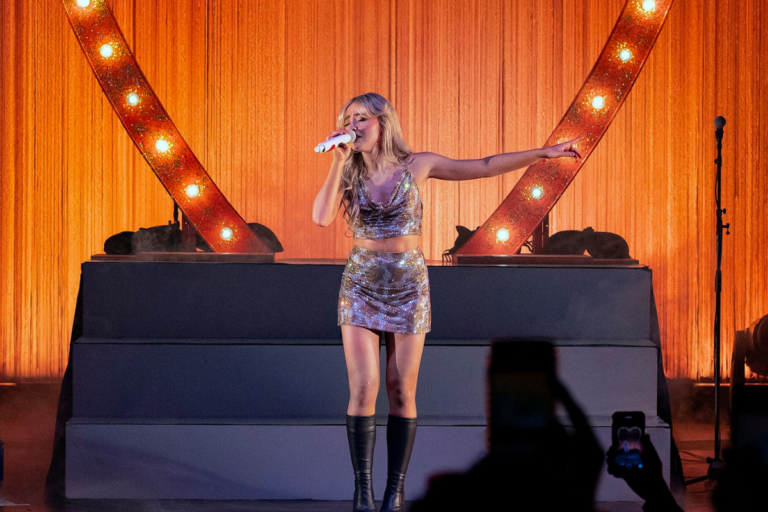Taylor Swift Reclaims Ownership of Early Albums After Years-Long Battle

Pop superstar Taylor Swift has regained ownership of the master recordings of her first six albums, ending a high-profile and deeply personal dispute that has dominated headlines for years.
“All of the music I’ve ever made now belongs to me,” the 34-year-old singer announced on her official website, adding that she had been moved to “tears of joy” by the development.
The saga began in 2019, when music executive Scooter Braun acquired Swift’s former label Big Machine Records, gaining control of the masters to her early albums: Taylor Swift, Fearless, Speak Now, Red, 1989 and Reputation.
Swift, who first rose to fame as a teenage country singer in the mid-2000s, publicly objected to the sale, citing Braun’s involvement in what she described as years of “manipulative bullying”, particularly in relation to her long-running feud with rapper Kanye West, one of Braun’s clients.
Speaking on her website, Swift said that the possibility of reclaiming her music had often felt “unimaginable”. She called the outcome “my greatest dream come true” and thanked fans for standing by her during the dispute.
“This art that I have dedicated my life to, but have never owned until now… I can’t thank you enough for helping to reunite me with it,” she wrote.
Industry Power Play
Ownership of master recordings gives artists control over how their music is licensed, distributed and used commercially. While performers earn royalties, the masters holder has the final say on usage rights—making them one of the most powerful assets in the music industry.
Swift’s original contract with Big Machine, signed when she was just 14, gave the label ownership of her masters in exchange for a substantial advance. This was standard practice in the pre-streaming era.
After her contract expired in 2018, Swift signed with Republic Records and Universal Music Group, securing control over all future recordings.
But the subsequent sale of Big Machine to Braun’s Ithaca Holdings in 2019 blindsided Swift, who said she was never given the opportunity to buy back her masters.
“I spent 10 years of my life trying rigorously to purchase my masters outright and was then denied that opportunity,” she told Billboard at the time. Braun later sold the masters to investment firm Shamrock Holdings, further angering Swift when she discovered he would continue to profit from the catalogue.
Taking Back Control
In a bold response, Swift began re-recording her early albums, releasing “Taylor’s Versions” of Fearless, Red, Speak Now and 1989, often with previously unreleased songs from the vault. The move was widely seen as an effort to devalue the original recordings and assert her creative independence.
The re-recordings proved to be both a critical and commercial success. A 10-minute version of All Too Well, a track from Red (Taylor’s Version), became a chart-topping hit in the US and broke UK records as the longest song to reach the top five.
Swift has yet to re-release Reputation, a project she admits has been difficult to revisit.
“To be perfectly honest, it’s the one album in those first six that I thought couldn’t be improved by re-doing it… so I kept putting it off,” she said. Nonetheless, she hinted that previously unreleased material from that era may still see the light of day.
She also confirmed that her self-titled debut album has now been re-recorded. “I really love how it sounds now,” she wrote, suggesting both Reputation and Taylor Swift might be released when the “time is right”.
A Symbolic Victory
Swift credited the massive commercial success of her Eras Tour – which has grossed more than $2 billion globally – as the financial catalyst that allowed her to secure the rights to her music.
She also acknowledged the broader impact of her fight, saying it had sparked meaningful change in the music industry.
“Every time a new artist tells me they negotiated to own their master recordings in their record contract because of this fight, I’m reminded of how important it was for all of this to happen,” she said.
Forbes reported in 2023 that Swift had become the first musician to earn $1 billion purely through songwriting and touring, with her catalogue and re-recordings playing a significant role in that milestone.
“Thank you being curious about something that used to be thought of as too industry-centric for broad discussion. You’ll never know how much it means to me that you cared. Every single bit of it counted, and ended us up here.”







